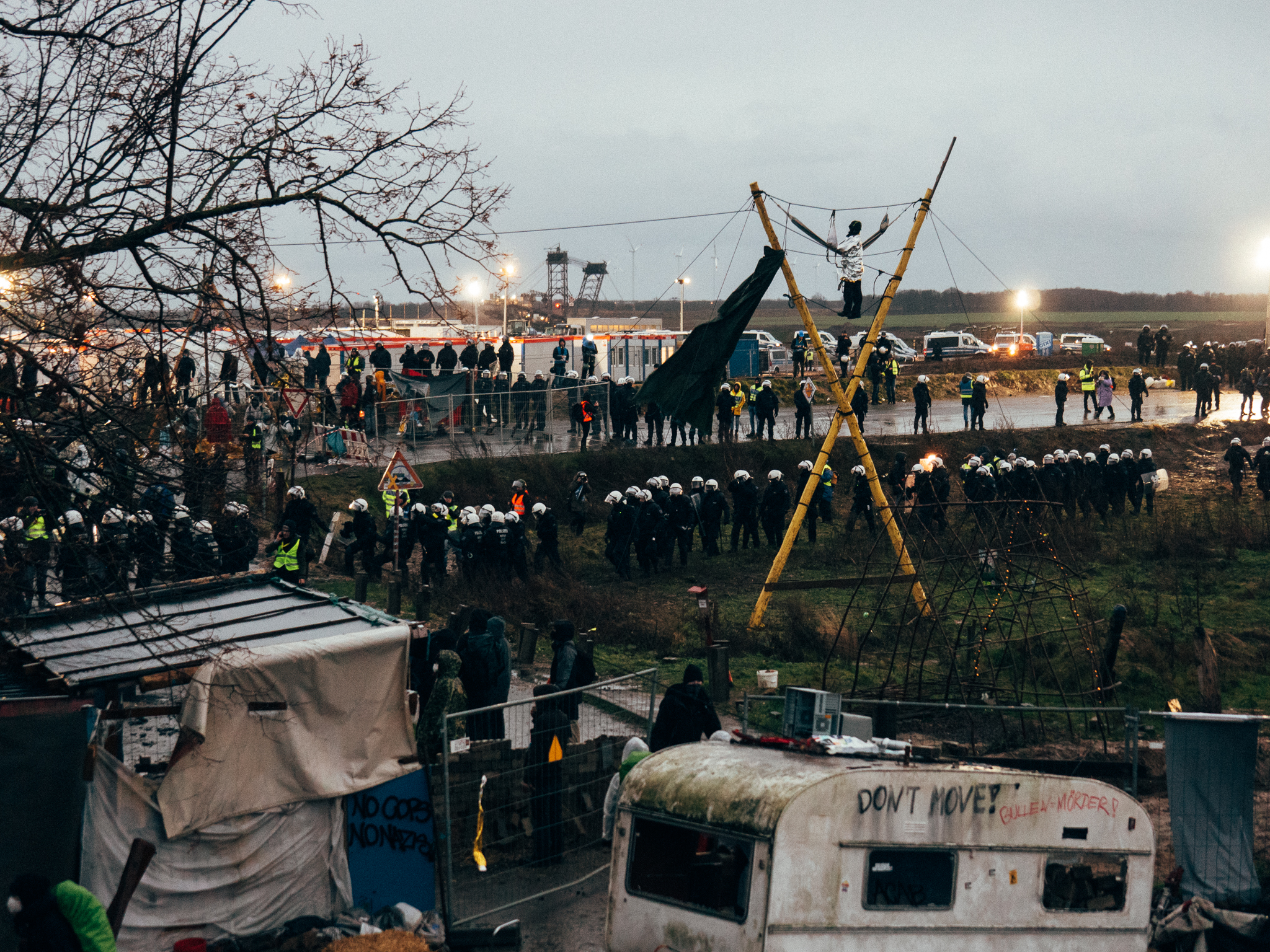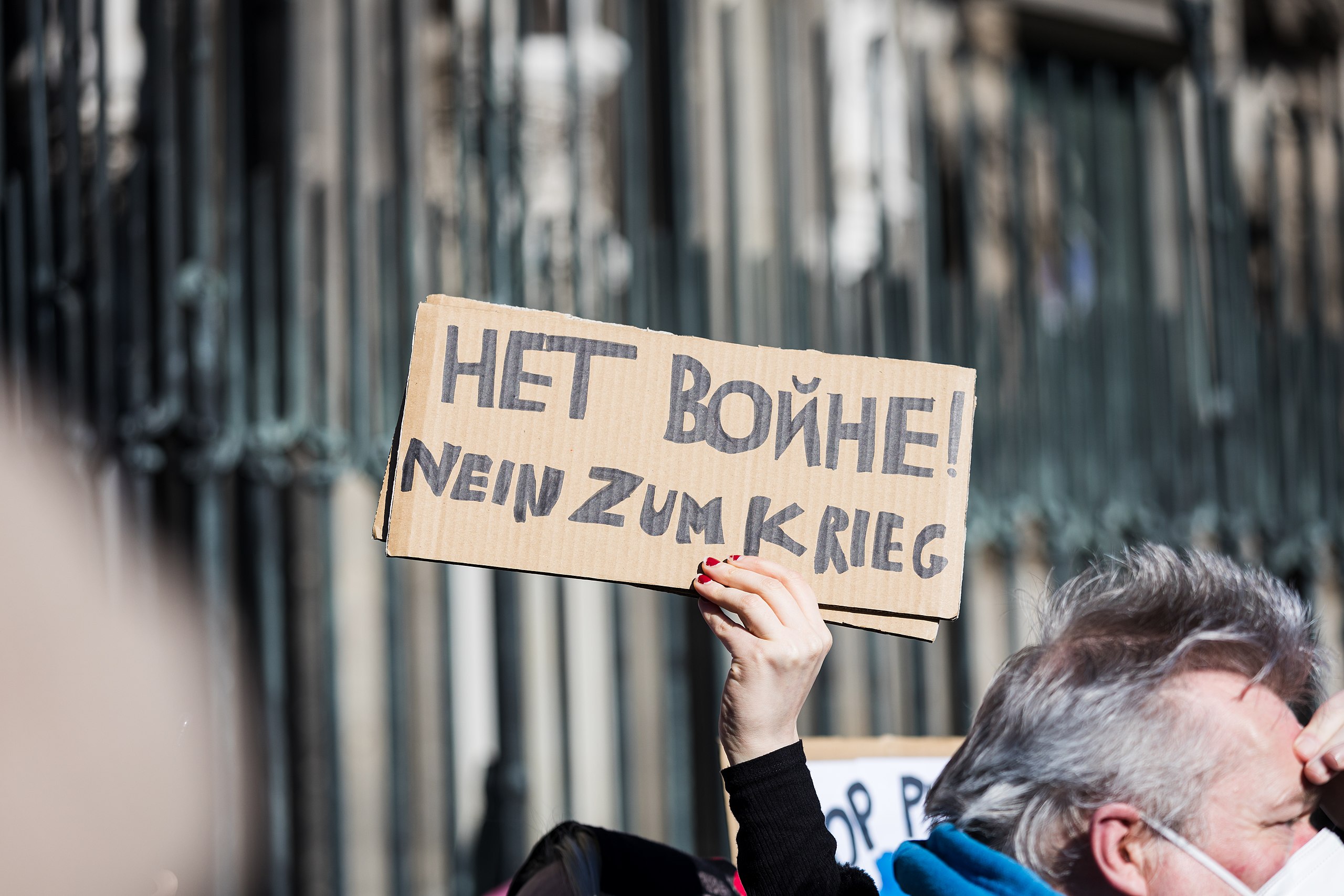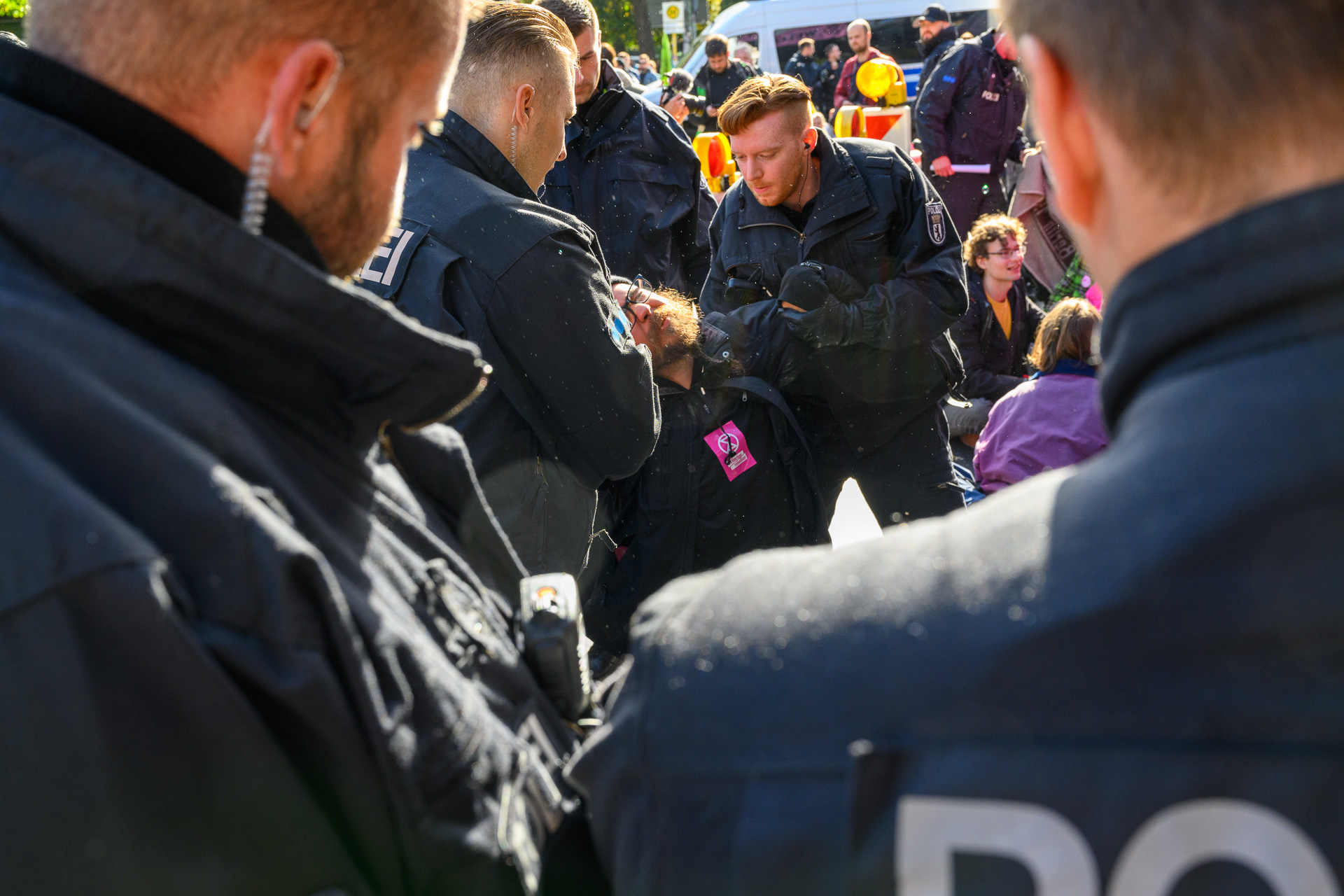Call for Papers of the research network “social movements and policing” for the annual conference of Institute for the Study of Protest and Social Movements
Deadline for submission: September 30 2021
The history of the labor movement is undeniably linked to the policing of its protests. The Haymarket Riots in Chicago in 1886, the February Uprising in Vienna in 1934, or the FIAT strike in Turin in 1969 mark just a few of the many historical turning points at which police intervention in protests and strikes significantly influenced the development of the labor movement. Yet, in the German Empire at the end of the 19th century, the fear of a growing strength of labor organizations forced a shift from military control of protests to their policing, and contributed to the institutionalization of the police as the main actor of inner security (Winter 2003).
Police and police officers are indeed themselves actors in the classification and positioning of social protests. Protest policing is highly selective and deals with protests differently on the basis of classifications shaped by police concepts of order, deviation, and related class- and milieu-specific attributions (Kretschmann 2016; Ullrich 2020). Thus, risk categorizations are embedded in internal narrations and knowledge circulation about protest actors and events (Wahlström 2007), as well as in public and political discourse. Vice versa, police are a powerful actor in categorizing and defining social struggles under the realm of danger. This forms a sort of “negative discrimination” (Castel 2009) of certain socially-positioned political actors. Police classifications can therefore be understood not only as a means of social ordering, but also as a way of “social sorting” (Lyon 2003) that contributes to the formation of class relations. How social protests can influence police classifications is determined by their respective opportunity structures, composition, and socioeconomic position. In particular, the (in)ability of organizers and protesters to mobilize symbolic, economic, and social resources determines their power to influence and/or contest police action. Institutionalized actors of the social question, such as trade unions, often succeed more effectively than marginalized groups in this respect (Earl, Soule, and McCarthy 2003).
Contemporary social struggles are co constituted by protest policing (della Porta and Tarrow 2012). For example, police repression fueled the Greek crisis protests in 2008 after the killing of the teenager Alexandros Grigoropolous. In the USA, police-caused deaths, such as the murder of George Floyd, have repeatedly triggered protests of the Black Lives Matter movement which has addressed policing as part of the economic and, in many cases, social and political exclusion of Black Americans.
In these cases, interaction with police has contributed to the formation of collective identities of social movements in the context of the ‘social question’. However, police repression can also lead to the disintegration and isolation of social movements (della Porta, Zwerman, and Steinhoff 2000). In the case of the Arab Spring protest wave starting in 2011, both the mobilizing effects of shared experiences of injustice and police repression, as well as the – partly military – deterrence and dissolution of protesters, could be observed. At the level of protest cultures, interactions with police shape the experiences of protesters and the (aesthetic) forms of protests. These protest cultures become inextricably intertwined with movements’ security cultures (Ullrich and Knopp 2018). The iconic protest form of the Primera Línea that was aimed to protect the Chilean estallido social (social outburst) protests in 2019 or this year’s general strike in Colombia against police intervention are just two more recent examples of the cultural dynamics of social protest and its policing. These examples indicate that the police contribute to the emergence and mold the forms of social struggles (Kriesi et al. 1992).
We invite both conceptual and empirical contributions that address the role of police in the formation of social inequalities and class relations in the course of controlling protest, and how the policing of social protests is shaped by social inequalities.
Contributions may pursue, but are not limited to, the following themes:
- How are particular expressions of class and social conflict (e.g., strikes, blockades) policed? Are there specific aspects in the protest policing of social struggles compared to other protest issues?
- How is the selectivity of protest policing shaped in the context of social protests? What factors and constellations influence police selectivity and classifications in the context of social struggles?
- How do social inequalities shape the policing of certain protests?
- What are the implications of policing for the dynamics of social protest and articulations of social issues? How does policing affect the development of social movements in this context?
- What role does the policing of social protests play in the formation of class relations and milieu fractions? How can we theoretically grasp the role of police and policing in the constitution of social inequalities (including their intersection with racism, patriarchy, ableism and other forms of oppression)?
Please send your abstract of up to 250 words to ipb_police@tutanota.com. Presentations shall not exceed 15 to 20 minutes.
Date of the panel: November 25/26 2021
Location: online conference; hosted by the Institute for the Study of Protest and Social Movements in Berlin
Organizers: Andrea Kretschmann, Philipp Knopp, Stephanie Schmidt, Roman Thurn
Deadline for submission: September 30 2021
More information on the conference “Social Movements and the Social Question”:
https://protestinstitut.eu/veranstaltungen_uberblick/annual-conference-2021-social-movementsand-the-social-question/
References
Castel, Robert. 2009. Negative Diskriminierung. Jugendrevolten in den Pariser Banlieues. Hamburg: Hamburger Edition.
Della Porta, Donatella, and Sidney Tarrow. 2012. ‘Interactive Diffusion. The Coevolution of Police and Protest Behavior with an Application to Transnational Contention’. Comparative Political
Studies 45 (1): 119–152.
Della Porta, Donatella, Gilda Zwerman, and Patricia G. Steinhoff. 2000. ‘Disappearing Social Movements. Clandestinity in the Cycle of New Left Movements in the U.S., Japan, Germany and Italy’. Mobilization. An International Journal 5 (1): 85–104.
Earl, Jennifer, Sarah A. Soule, and John D. McCarthy. 2003. ‘Protest under Fire? Explaining the Policing of Protest’. American Sociological Review 68 (4): 581–606.
Kretschmann, Andrea. 2016. ‚Die Polizei in Gewaltdynamiken. Eine sozialtheoretische Annäherung‘. Juridikum 4: 504–515.
Kriesi, Hanspeter, Ruud Koopmans, Jan Willem Duyvendak, and Marco G. Giugni. 1992. ‘New Social Movements and Political Opportunities in Western Europe’. European Journal of Political Research 22 (2): 219–244.
Lyon, David, ed. 2003. Surveillance as Social Sorting. Privacy, Risk, and Digital Discrimination. London; New York: Routledge.
Ullrich, Peter. 2020. ‘“Normal Citizens” versus “Rowdies”. Police Categorisations of Protesters in Germany’. Sociologia, Problemas e Práticas, 92: 9–36.
Ullrich, Peter, and Philipp Knopp. 2018. ‘Protesters’ Reactions to Video Surveillance of Demonstrations: Counter-Moves, Security Cultures, and the Spiral of Surveillance and Counter-Surveillance’. Surveillance & Society 16 (2): 183–202.
Wahlström, Mattias. 2007. ‘Forestalling Violence. Police Knowledge of Interaction with Political Activists’. Mobilization: An International Quarterly 12 (4): 389–402.
Winter, Martin. 2003. ‘Metamorphosen des staatlichen Gewaltapparates. Über die Entwicklung von Polizei und Militär in Deutschland’. Leviathan 31 (4): 519–555.
Photo by Vishnu Kale on Unsplash



